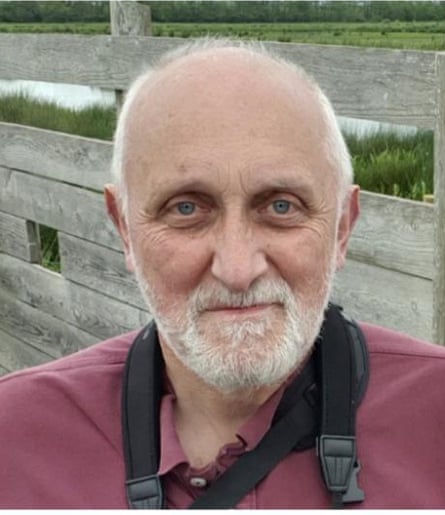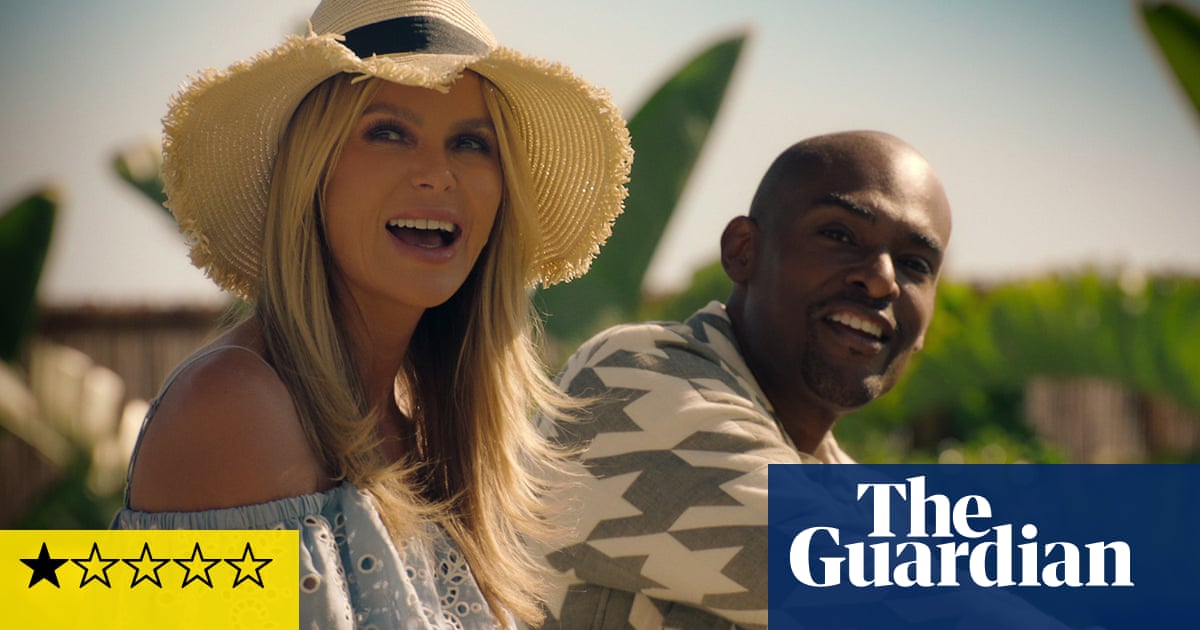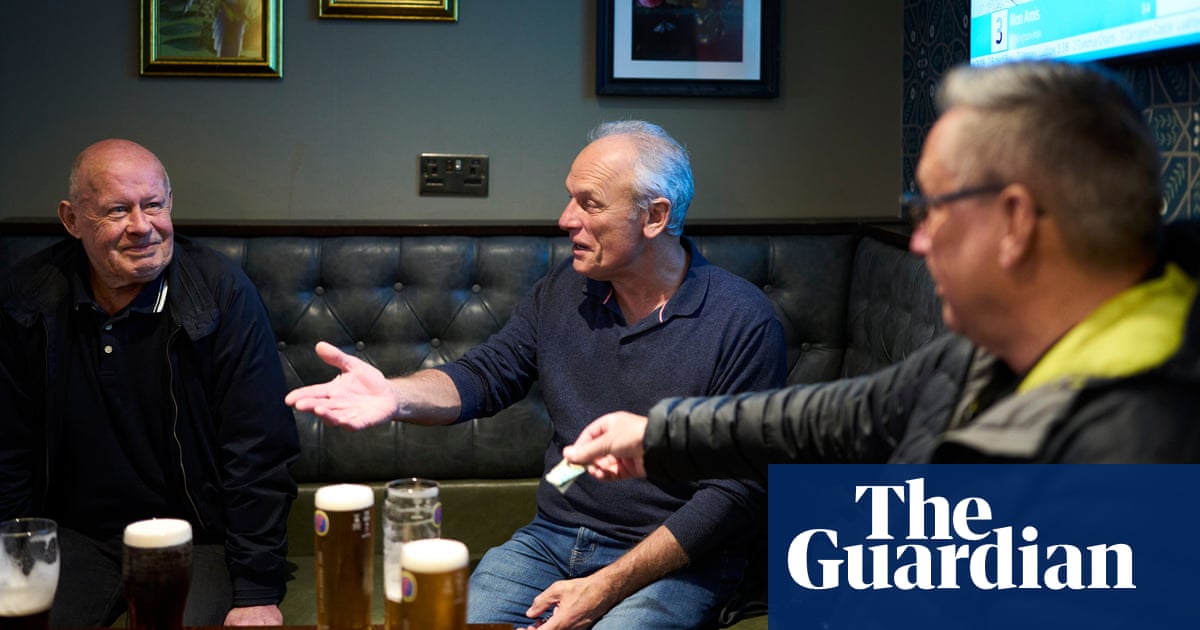Kari Johnston felt ready to retire after 45 years in nursing when, at 63 years old, she decided to launch her own business – a professional decluttering and organising service.
She had read about decluttering and, fascinated, quickly created a website and advertised. Her first clients were friends. Three-and-a-half years later, Johnston, from St Monans in Fife, is now fully retired from nursing, and feels delighted with the success of her new venture.
“It’s something I really enjoy doing,” she said. “I charge £30 an hour, with most jobs lasting at least four hours. I can fit my working sessions around my life, walking our dog, caring for our granddaughter, going on holiday and visiting family.”

Johnston was among the Britons who shared with the Guardian why they had set up their own businesses after passing the big 60.
The number of self-employed individuals aged 60 and older hit a record 991,432 in 2023, according to analysis of Office for National Statistics data by the digital community Rest Less, and 35% of new businesses in the UK are now started by people aged 50 and above, according to Enterprise Nation.
Many respondents said they had launched their own businesses to pursue creative passions or a better lifestyle, often after decades in unsatisfactory or highly stressful employment.
Others said they had simply seen no other option after either becoming too frail for regular employment or having been unable to find work close to state retirement age, with several complaining of age discrimination.
While many said they had to keep working to stay financially afloat, others said it had been their choice to stay active and seek fulfilment through entrepreneurship.
Johnston was among various people who said that spending more time with people was a main motivator in setting up shop at an age when many of their peers were readying themselves to exit the workforce.
“I like meeting the varied people who contact me for help,” she said. “I thought decluttering would feel completely different to nursing, but I actually provide some kind of therapy. It’s never about the teacups, it’s about how people feel about their stuff.
“Some have hoarding tendencies, but you need to care, not judge. I possibly get more satisfaction from what I do now than I did from nursing.”
Geoff Carss, 63, from Wedmore, Somerset, initially trained as a geologist and had worked in software engineering and corporate sales. One of his big passions, however, has always been biodiversity.
Dismayed over increasing biodiversity loss, but also a general lack of accuracy in reports on the topic, Carss began to think about better ways of measuring levels of biodiversity around the world.
“It had to be easy to use, it had to work anywhere, and be scalable,” he said.
In 2022, after much research, Carss decided to launch a tech company and, with the help of his business partner, Lorenzo Trojan, developed a way to use sound and AI to measure biodiversity.

“The aim is to provide land managers, ecologists, nature-based NGOs and others with a better understanding of the impact they are having on biodiversity by automatically analysing vast quantities of audio captured by mini recorders. An AI checks the recording every three seconds and then identifies what has made a sound – a robin, say.”
Interest in his venture, Wilder Sensing, Carss said, had been “huge”, and the company is now in the process of hiring additional software engineers and business developers.
“This has been a revelation to me, I’ve never done anything like this before. It’s been deeply satisfying to set up and lead a tech startup aged over 60. It’s crazy, but good crazy. Just wonderful, and deeply purpose-driven.”
A desire to be creative pushed Sibylle Hyde, 62, from west London, to launch her own business after retiring from teaching economics last year.
“I am a qualified upholsterer – I had taken classes since the 1990s. Since I enjoy making curtains, blinds, and upholstery, as well as cycling, I thought: ‘Why don’t I become a cycling curtain-maker?’”

Hyde set up her local curtain-making business in May, dropped some leaflets in her neighbourhood and made a website.
“I have a garage and a small workshop at home, and I’ve only spent around £1,200 so far on tools: a trailer for my bike, and some Ikea table tops I clip together for very long curtains,” she said.
“It’s picking up slowly, thanks to recommendations and some repeat business. I’ve been having around £250 worth of business a week, enough for now. But if possible, I will 100% expand and hire staff.”
Despite the long hours it takes to make custom Roman blinds from scratch, Hyde is very happy with her new venture.
“You need to be careful that the work doesn’t impact your health, but for me, it’s perfect, I love it. Cycling keeps me fit, and I like creative problem solving.
“I’m too young for going from 100 to zero. I’ll do this for as long as I’ll be able to, and am thinking of offering upholstery workshops for kids.”
Doing something useful in retirement also motivated Andrew Hall, 70, from Hexham, Northumberland, when his laboratory research career at Newcastle University ended in 2016.
“I had been exploring the reasons why some children with cancer become resistant to treatment,” he said.

“When I retired from the university I felt I still had some fuel in the tank and wanted to provide patients with rare forms of cancer the option of being linked up with academic research groups and pharmaceutical companies with new ideas that may help with their treatment..”
Originally conceived as a charity, Hall decided that it would be better to fund his service by charging companies to find patients for clinical trials.
With three colleagues and financial support from family, friends and angel investors, Hall launched his company, RareCan, in 2020.
Today, the platform provides a free trial matching service for nearly 2,000 registered patients, who are found with targeted advertising on social media and Google, and by working with charities.
Setting up shop so late in life has been “fascinating”, Hall said. “This work is full-time, though more flexible than a nine to five job. I feel very motivated and I am, at long last, working to my own agenda.”
After a decades-long career as an IT systems specialist, Kath, now 64, had had enough of the corporate rat race. In 2022, she moved from Yorkshire to Blairgowrie, Perthshire, where she established a sourdough bakery in her own home to help pay the bills.
“Since they changed the state pension age I have no choice but to keep working and need something which fits around my six-year-old twins [at time of interview] and their home education. Bread making is flexible, I decide when I make it, and get up at five o’clock to bake, to get it to the local shop at nine o’clock.”
Lacking capital and support for older people starting a business, Kath has been unable to rent business premises.
“The grants are aimed at younger people, and up here in Scotland nobody is providing small workshop spaces.
“Without bigger ovens, working at scale is very difficult. I bake about 70 to 80 loaves a week, and am selling them for £4 each. If I make a few hundred pounds a month, I’m doing well, which is the difference between surviving and not surviving.”

Despite enjoying bread-making, working in a physical job is taking its toll, Kath said. “It’s a constant struggle, but on the flip side you don’t get bullied by bosses and colleagues.
“I’d always wanted to be a baker and it’s very satisfying work, but I do this primarily to bridge the time until state pension age.
“You’re not allowed to stop, and so the oldies, many of us are having second lives.”

 3 hours ago
6
3 hours ago
6













































